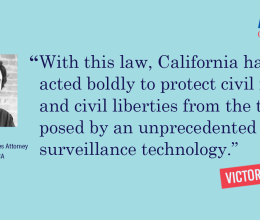Sixteen thousand members of the International Association of Chiefs of Police (IACP) were at the San Diego Convention Center this past October 15 – 18 for their annual conference. In an extraordinary statement delivered to the group on Monday, IACP President Terrence Cunningham took an important first step forward in building stronger relationships with and within black and brown communities – he apologized “for the actions of the past and the role that [law enforcement] has played in society’s historical mistreatment of communities of color.”
Chief Cunningham’s apology is significant. It was offered on behalf of thousands of police chiefs across the country; it acknowledged the systemic oppression of people of color by law enforcement; it recognized that although abusive police practices may have been legal at one time, such behavior belongs in the past; and it opened a new window of opportunity for law enforcement to work candidly and cooperatively with community groups to end police abuses occurring in the present-day. Toward this end, we agree with national ACLU Deputy Legal Director, Jeffery Robinson, who applauded the IACP President’s apology, but also said “[t]hey're not responsible for what happened in 1968, but they're damn sure responsible for 2013, 2014, 2015, 2016, and unfortunately the same kind of abuses that are being apologized for in this statement are still occurring."
The day before Cunningham’s apology, FBI Director James Comey told the IACP that, given the lack of current national data on police use-of-force, Americans “actually have no idea [of] the number of black people or brown people or white people being shot by police.” We believe this is an unfortunate and unacceptable knowledge gap that serves to hinder police accountability, particularly in communities of color. Quality data is essential for both transparency and accountability.
Already, California is taking steps to improve data collection around police use-of-force and racial profiling. Locally, the City of San Diego commissioned San Diego State University to analyze San Diego Police Department traffic stop data that we expect will shed light on possible profiling of local drivers. The SDSU study will be presented and discussed at the City Council’s Public Safety and Livable Neighborhoods Committee meeting on October 26, 2016. We look forward to reviewing this long-awaited study; to participating in a candid, constructive and evidence-based discussion of policing in San Diego; and to working with all stakeholders – affected community members, organizations, policy makers, and law enforcement – to bring about positive change for all concerned.
In an email following Monday’s apology, Chief Cunningham said, “communities and law enforcement need to begin a healing process and this is a bridge to begin that dialogue. If we are brave enough to collectively deliver this message, we will build a better and safer future for our communities and our law enforcement officers. Too many lives have been lost already, and this must end. It is my hope that many other law enforcement executives will deliver this same message to their local communities, particularly those segments of their communities that lack trust and feel disenfranchised.”
We couldn’t agree more.
SDACLU Statement Regarding Police Apology For ‘Historical Mistreatment of Communities of Color’
Related Issues
Related content
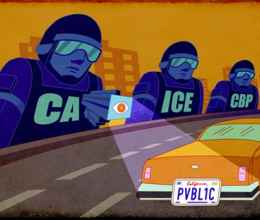
Lagleva et al. v. Doyle
October 14, 2021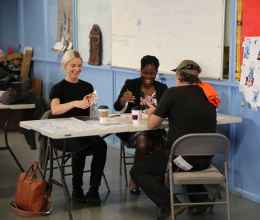
The C.R.I.S.E.S. Act (AB 2054)
August 10, 2020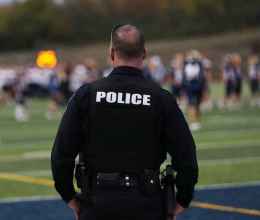
P.R.O.M.I.S.E Act (AB 1007)
August 10, 2020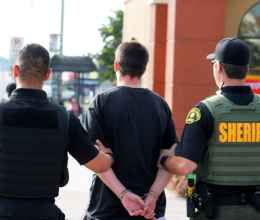
What to do if you're stopped by the police or law enforcement .
August 9, 2020Advocacy
August 5, 2020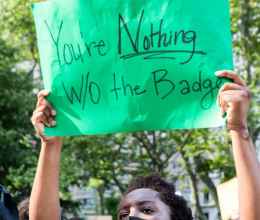
Kenneth Ross Jr. Decertification Act (SB 731)
June 30, 2020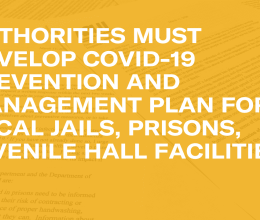
ACLU: Authorities Must Develop COVID-19 Prevention and Management...
March 12, 2020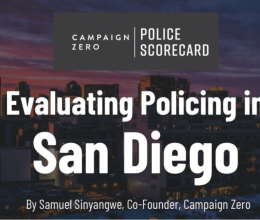
ACLU: San Diego Police and Sheriff’s Department data shows...
January 21, 2020